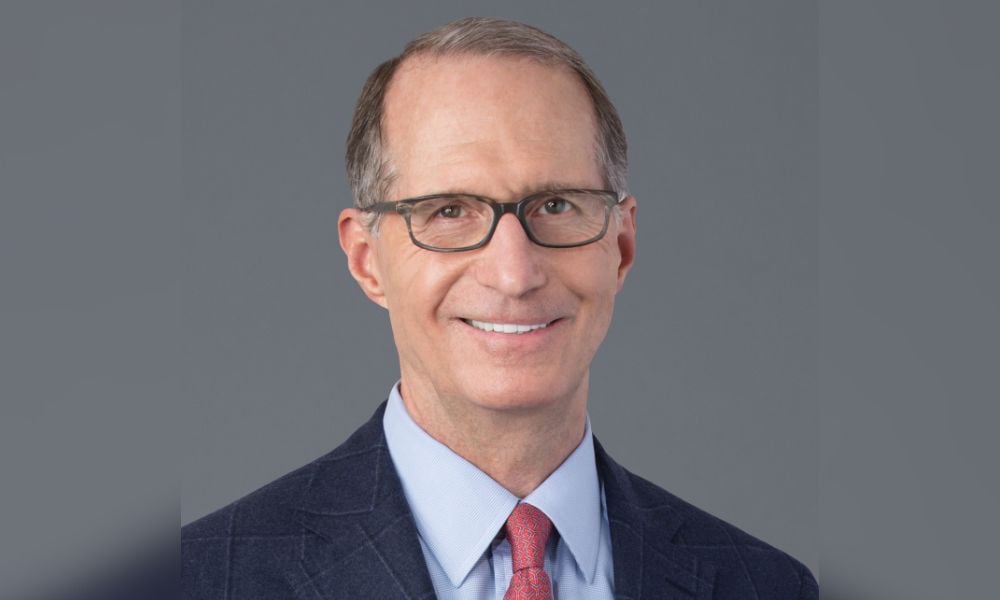

Add John Thiel to the long, growing list of senior executives at the top wirehouses who have crossed Wall Street to work with the direct competition, registered investment advisors and RIA aggregators, and, in the process, are potentially making themselves much wealthier.
It would be hard to find another executive who embodies the spirit of the old Merrill Lynch, dubbed the Thundering Herd, more than Thiel, who started at the firm in 1989 as a financial advisor, according to his LinkedIn profile.
He rose through the ranks and, from 2011 to 2016, Thiel was head of Merrill Lynch Wealth Management; then he was vice chair of global wealth management and investment management at Bank of America until 2018, when he left the firm.
Thiel has launched an RIA, directly competing with his old firm. In November, he announced he was opening Indivisible Partners, based in Clearwater, Florida. And at the start of the year, Thiel, the firm’s founder and executive chairman, said it had recruited its first team of financial advisors, Woodring/LeRoy Capital Advisors.
“John had an awesome reputation at Merrill, with so many financial advisors and senior executives loyal to him,” said Louis Diamond, an industry consultant. “He really was the last of the old school there. You couldn’t get more Merrill Lynch than John Thiel.”
Now, Thiel, like so many of his former senior wirehouse brethren, is back in the financial advice business, but on the other side of the street.
Based in Pittsford, New York, Woodring/LeRoy has assets of $640 million, according to an announcement from Indivisible Partners. Lee Woodring, founding and managing principal, and Robert LeRoy, founding principal, are both Merrill Lynch veterans. The former was a financial advisor at Merrill from 1996 to the start of this year, and the latter started at Merrill in 2010 before leaving in January.
Thiel did not return phone messages to comment on this article.
Executives like Thiel, and the financial advisors who join such startups, often get another bite of the apple when they lead or join an RIA or RIA aggregator; the private equity-backed or back-owned firms may reward leaders and advisors with equity, which can turn into a significant payday when the new firm is eventually sold, either in whole or in part.
Wirehouses control tens of thousands of financial advisors who, on average, generate the most annual revenue per advisor in the financial advice industry.
Merrill Lynch, Morgan Stanley, and UBS do not allow their financial advisors to work as independent advisors, who typically earn a larger percentage of revenue than advisors at wirehouses. Owners of RIAs also enjoy tax benefits that advisors who are employees do not.
Wells Fargo Advisors is the only wirehouse to attempt to build a significant independent brokerage and custodian business.
“You have executives like Thiel and others no longer at big banks or wirehouses, but they still have almost countless relationships with financial advisors,” said Larry Roth, managing partner at RLR Strategic Partners. “Those senior executives know what those wirehouse advisors need and want.”
“Plus, there’s so much capital to start a new firm with the plan of hiring experienced advisors,” Roth said. “Those executives can go to the private equity managers – and you bet they will listen, particularly if it’s a management team who can execute a strategy.”
“Some of those firms have taken off like a rocket,” he added.
Thiel is joining a crowded field of new wealth management firms that are led by former wirehouse executives.
Greg Fleming, a former senior leader at both Merrill Lynch and Morgan Stanley, is CEO of Rockefeller Capital Management. The firm was a longtime family office that Fleming relaunched in 2018 into the broader wealth management market and, since then, has hired dozens of wirehouse financial advisors.
At the end of December, the firm was responsible for $151 billion in client assets across its three businesses, Rockefeller Global Family Office, Rockefeller Asset Management, and Rockefeller Global Investment Banking.
And such firms are creating value for shareholders and investors. In 2023, Rockefeller Capital Management said it had sold a 20.5 percent stake for $622 million, putting a valuation on the firm of about $3.1 billion.
And Rockefeller is just one example. Other notable and recent startups led by executives who cut their teeth at the wirehouses and are now hiring those same advisors include Sanctuary Wealth, with close to $50 billion in assets, and NewEdge Capital Group, which works with about $65 billion in client assets.
And the list of big names goes on.
“The thesis for new firms led by wirehouse veterans is simple,” Diamond said. “The wirehouse advisors want to work in and move to the independent RIA side of the industry, but they don’t want to do it alone.”
“What matters for these new firms is how much traction they get in recruiting financial advisors,” Diamond said. “A firm can have the best business plan or technology, but it doesn’t matter if it can’t recruit advisors.”

Focus gets back to external M&A after its January rebrand, while Cerity enters the Arizona market with a veteran planning-focused team.

Complaint details near decade-long scheme raising almost $40 million from dozens of clients, including Venezuelan nationals, Catholic dioceses, and elderly individuals.

A veteran with more than two decades of experience, Andina Andreson represents the latest in a string of recent leadership changes at the firm.

The latest additions to RBC's long history of attracting billion-dollar UBS teams have bolstered its presence in Boise, Idaho.

The controversial hedge fund manager fails to stop the SEC from moving forward with a potential industry ban, after a federal judge rejects constitutional claims.
How intelliflo aims to solve advisors' top tech headaches—without sacrificing the personal touch clients crave
From direct lending to asset-based finance to commercial real estate debt.
